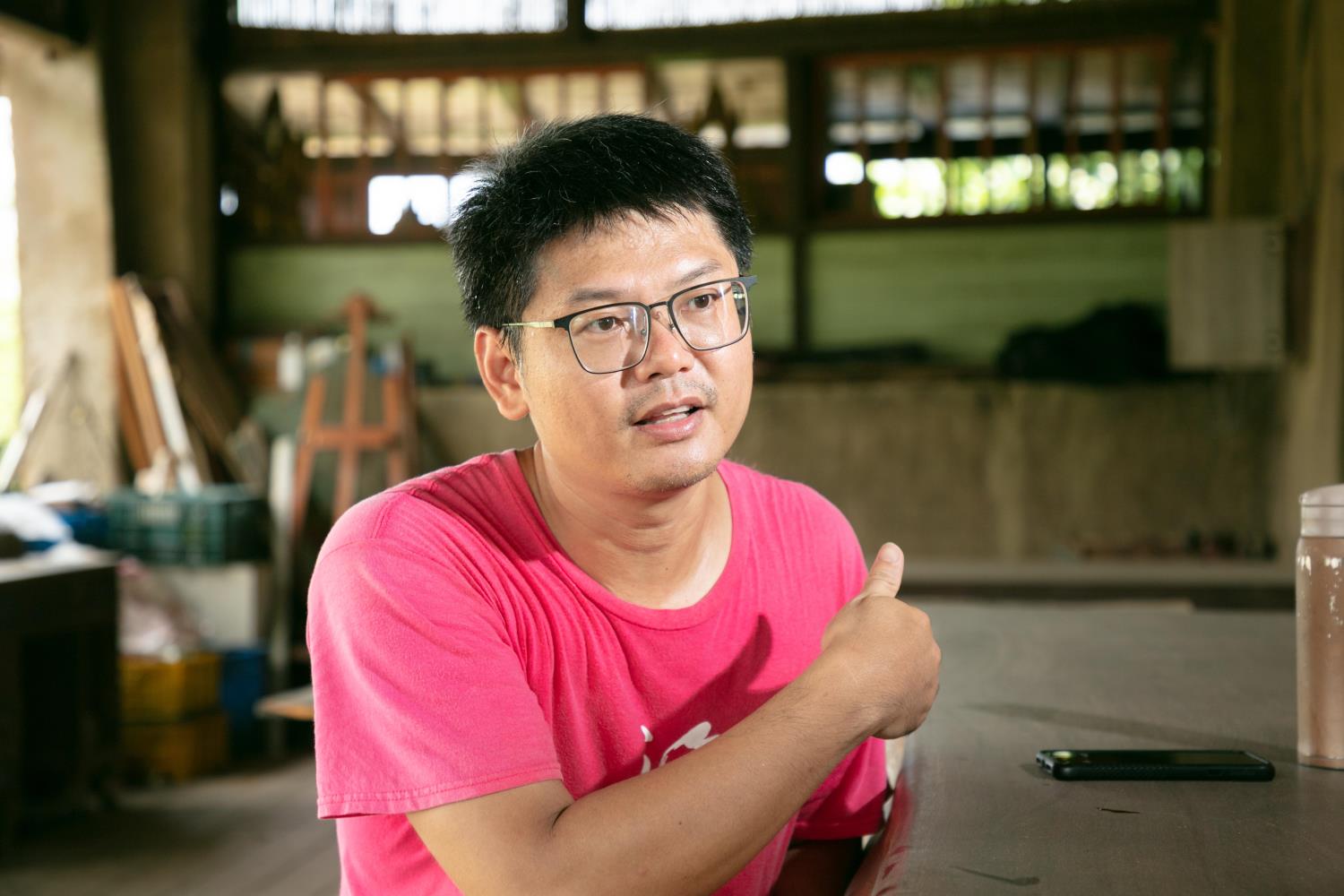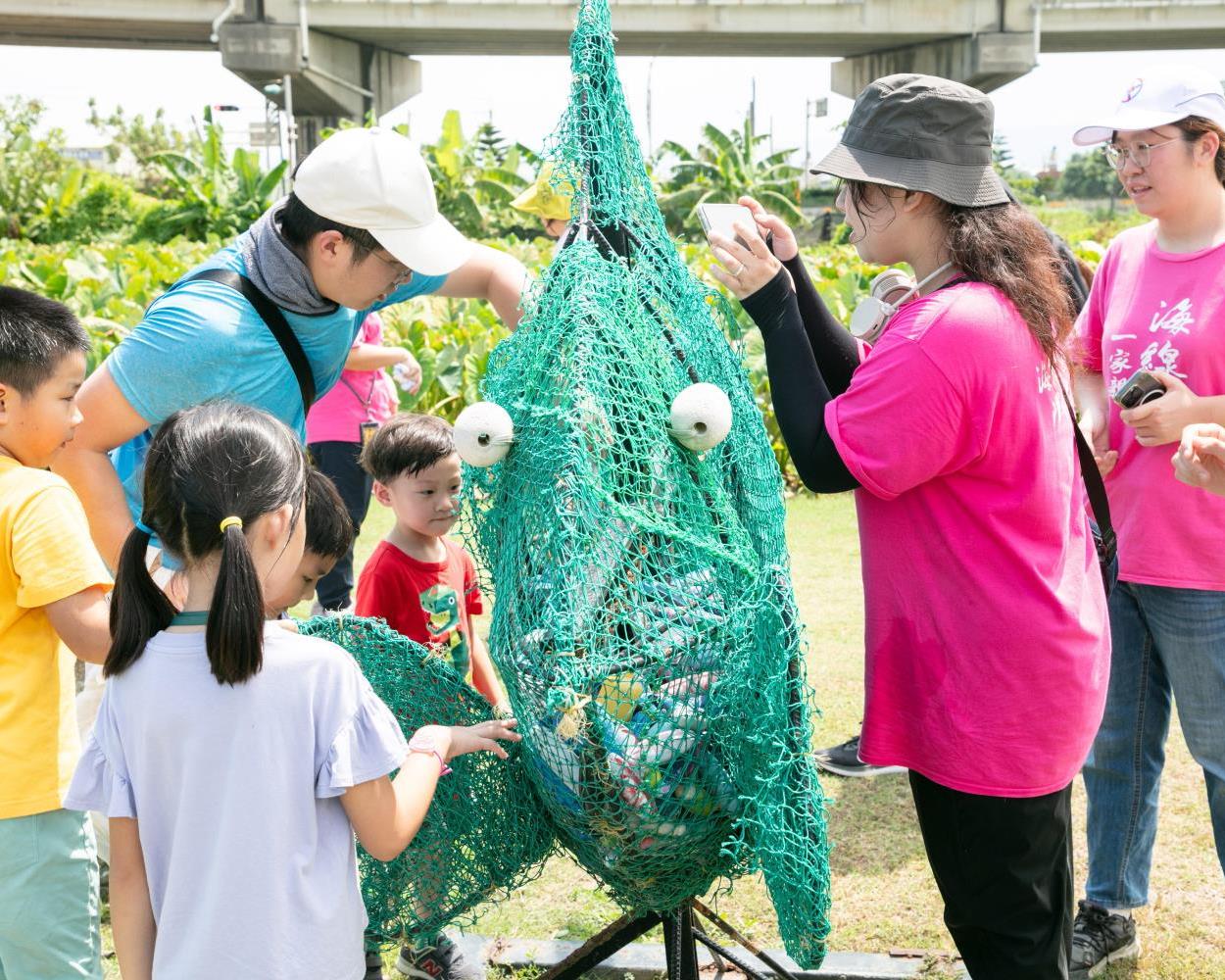
Home/Tag/
Coastline Environmental Protection Association: Agri-food Education and Marine Debris Art—Scientifically Building a Sustainable Business Model
The 921 Earthquake in 1999 damaged Taiwan hardly, so the government strongly called young people devoted to the local communities and made a home-returning trend.
In 2010, a foreign company build large wind turbines alongside the Miaoli coastline, which stimulated the local residents to protest it by mobilizing protesters from 9 cities of the nation in more than 2 years. The protest ended in 2012. Mrs. Chen Hui-ming and her husband, Mr. Chen Shi-jia, thought they should make the goal of Sustainable Hometown a daily action. Therefore, the couple and the locals planned 2 years to set up the Coastline Environmental Protection Association to realize their love for their hometown through agri-food education and coastline art ecosystem.
Non-toxic, Organic, and Friendly Farming Tripled the Price of Sweet Potatoes
About Agri-food Education. Mrs. Chen Hui-ming calls herself a person who emphasizes "what you've eaten" and is very averse to unnatural or processed foods. However, "the local old farmers were accustomed to applying pesticides. They would rather accept the reality of saving time on pest control and increasing crop yields, but with low prices." Therefore, Mrs. Chen and her team members are determined to make those old farmers understand that although friendly farming will drop the yields, there are more benefits. Besides not harming the body and the land, the most important thing is that the crop prices have tripled.
The team members first solicited an idle land as a public farmland. In the first phase, they cultivated rice and then transitioned to planting sweet potatoes. Mrs. Chen and 10-plus student volunteers from National Taiwan University demonstrated organic farming methods in the fields. From the sweet potato seedling, weeding, and vine flipping (removing the small tangled root system that grows beneath the vines) to harvesting, washing, and sorting. The old farmers see that although the final yield amount was only half of the traditional method, the unit price of the organic sweet potato was increased to NT$60 per tkg. In contrast, the traditional farming methods could yield up to 8,000 tkg (about 4,800 kg), but the unit price was only NT$15.
The local old farmers were moved to action, so the Association took the opportunity. It divided the public farmland into 10 plots, and those interested could each claim one plot for growing vegetables such as eggplants or chili peppers. At the same time, agriculture experts were invited to give lessons and share knowledge. "The old farmers brought back those organically grown vegetables home. The first bite amazed the whole family, especially those cooking mothers, who said, 'This is the true, original taste of the food we used to have when we were young.'"
Mrs. Chen Hui-ming has a business brain, she thought they could venture into the organic food industry and look for corporate collaboration. "We asked DBS Bank Taiwan Ltd. to collaborate on a Volunteer Day, which provides a whole package of experience activities. We educated the bank staff on organic planting knowledge when we took them walking through the fields. Back to the interior room, we invited culinary lecturers to teach them DIY fried sweet potato balls." This business model is still working now.
Four Steps of Beach Cleanup and Waste Collection Captures Tech Giants' Attention
In 2019, the association stepped into the beach cleanup field. The elderly of the long-term care organization nearby suggested the team apply the government's resources for a better development and promote marine education courses with local schools. The team listens to the suggestion. They got 4 subsidized staff in their first application for the three-year Economic Type Multi-Employment Promotion Program from the Workforce Development Agency, Ministry of Labor.
As the project manager, Mr. Chen Shi-jia used his agricultural experience to lead a rigorous beach cleanup operation and create a new business for marine education. The normal beach cleanup is mostly known in picking up disposable tableware, plastics, and other garbage left over from the coastal activities; however, the garbage classification is more important. After repeated discussion, Mr. Chen and his team designed a four-step beach cleaning program, including picking up, giving lectures, DIY marine debris art, and seafood meals, among which picking up is the key.
The team followed the marine waste standards set by the International Coastal Cleanup (ICC) and used a unified form to record the types and quantities of garbage to find a solution in a feasible way. The data could also strengthen the level of marine education. With those scientific bases, which attract the BenQ Foundation, which focuses on marine rescue, and the bicycle industry leader, GIANT Group, contentiously collaborate with the Association to host their Volunteer Days.
In addition, the team of the Association actively seeks government resources. Through the Taoyuan-Hsinchu-Miaoli Regional Branch of the Workforce Development Agency, Ministry of Labor, they have connected with National Taiwan Ocean University, the Wildlife and Nature Section of Miaoli County Government Agricultural Department, Professor Liu Shao-Lun from Tunghai University's Department of Life Sciences, and the experts of Miaoli Nature Ecology Society. They co-established a monitoring system along the Chushui Coast to track the sudden emergence of Ulva lactuca (sea lettuce) over the past decade, aimed to interpret whether these algae—considered an ecological indicator of intertidal zones—has a positive or negative impact on the environment.
Promoting Marine Debris Art and Hosting Hands-on Ecological Workshops
About Coastline Art Ecology. In 2021, the Association was participated the Miaoli Coastal Land Art Festival and presented five craftworks. Mrs. Chen Hui-ming hopes through the government-led collaboration connecting local organizations in Yuanli and Tongxiao townships, the issue of marine debris art can be actively advocated, turning the vision of integrating art into the community.
Since then, Mrs. Chen uses young people under 30 years old as the key team members and designs several hands-on ecological workshops for different types and ages customers. For example, Yuanli, known as "Hometown of Rush Grass," partnered with the Chushui Community Rush Weaving Group to co-organize a Rush Grass Ecology Dining Table Workshop. They also introduced a low-carbon trip featuring cycling tours, where participants could visit local fishing ports to witness the fish auction process and learn techniques for selecting fresh fish.
Three Five-Year Plans to Solve Social Issues and Strive for Financial Independence
In early 2024, the Association switched to the Two-year Empowering Employment Program (EEP) and located 6 staff. The other 2 project managers, Ms. Kuo Xiao-xuan and Wang Yu-zi, are both enthusiastic and diligent partners, especially in the fields of Marketing and E-Commerce, paying attention to the activities' details and user experience.
The next decade will be the sprint period. "Government subsidies are not a long-term solution. Since the Association is determined to solve social issues, we certainly hope to become a financially independent social enterprise one day." Mr. Chen Shi-jia said, "We had set three of the five-year plans when we applied for the MEPP. Now, we are moving continuously towards realizing our dream by 2035."
Official Facebook Page of Coastline Environmental Protection Association
| Mr. Chen Shi-jia: 17 Years of Hard Work to Turn the Wasteland into Gold
|
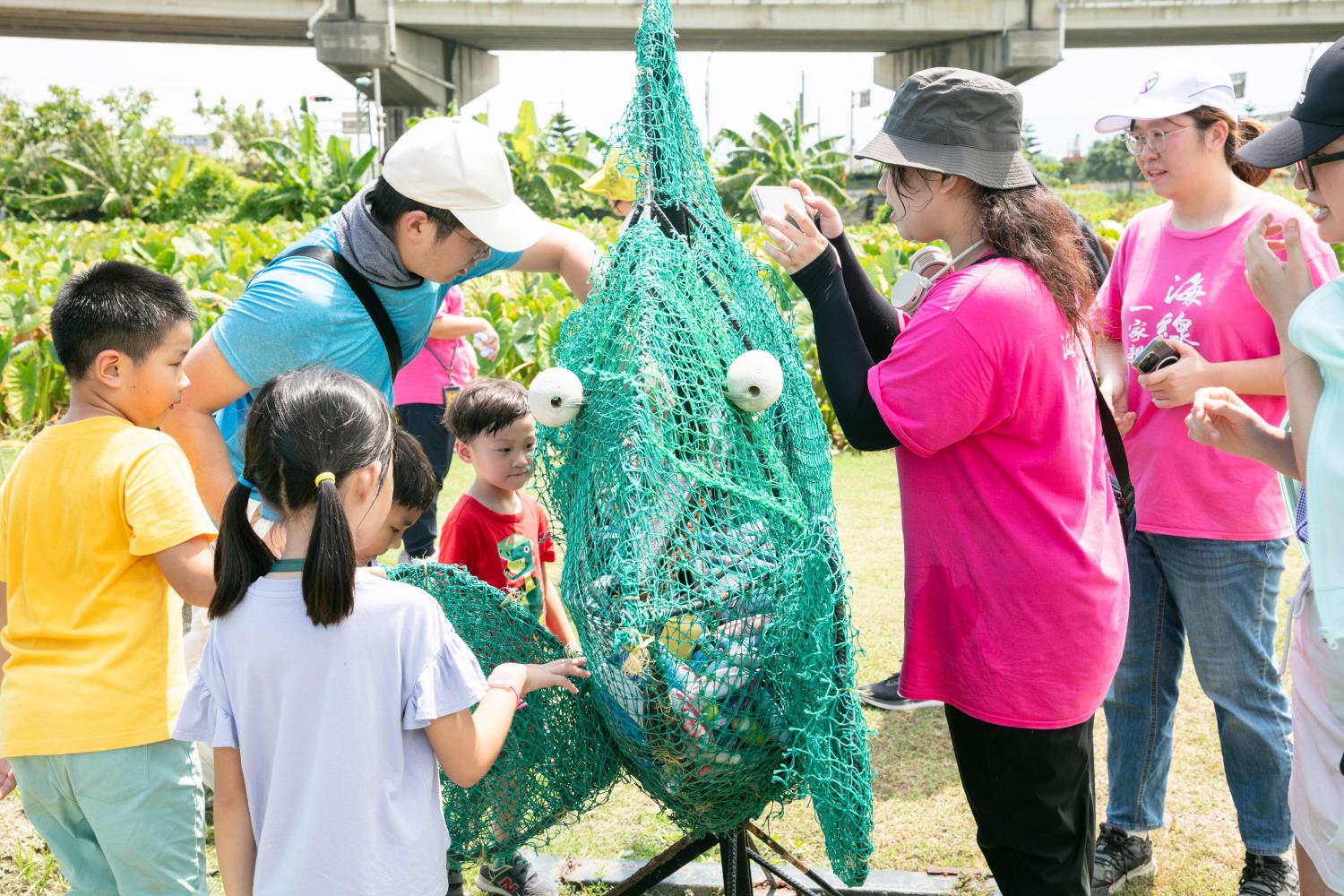
▲Bicycle industry leader Giant Group held an environmental volunteer day, and the participating employees made a crowd on the beach (Photo provided by Coastline Environmental Protection Association)
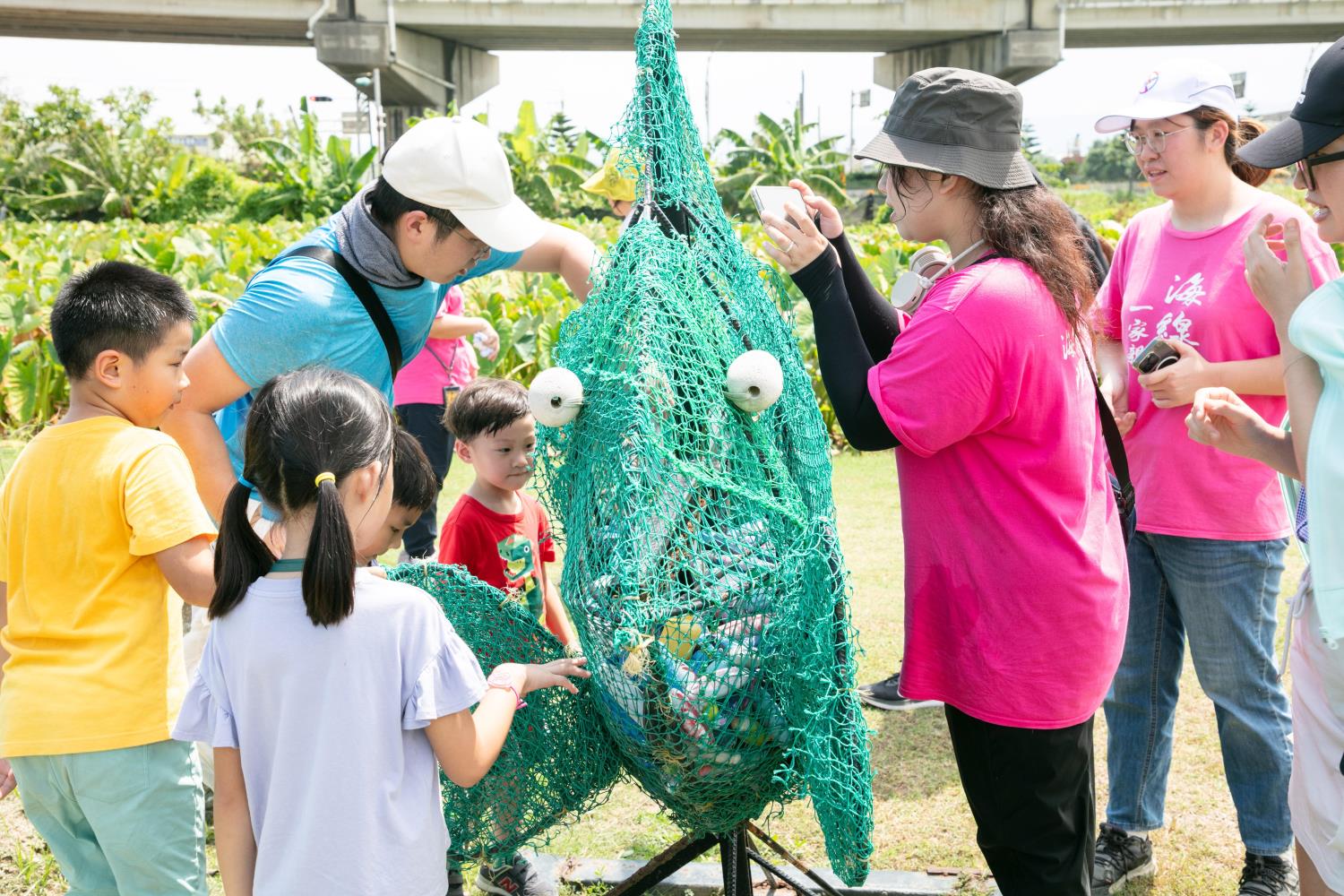
▲The ingenious beach cleaning activity has also become part of the nature experience for the public. (Photo by Lin Ying-cheng)
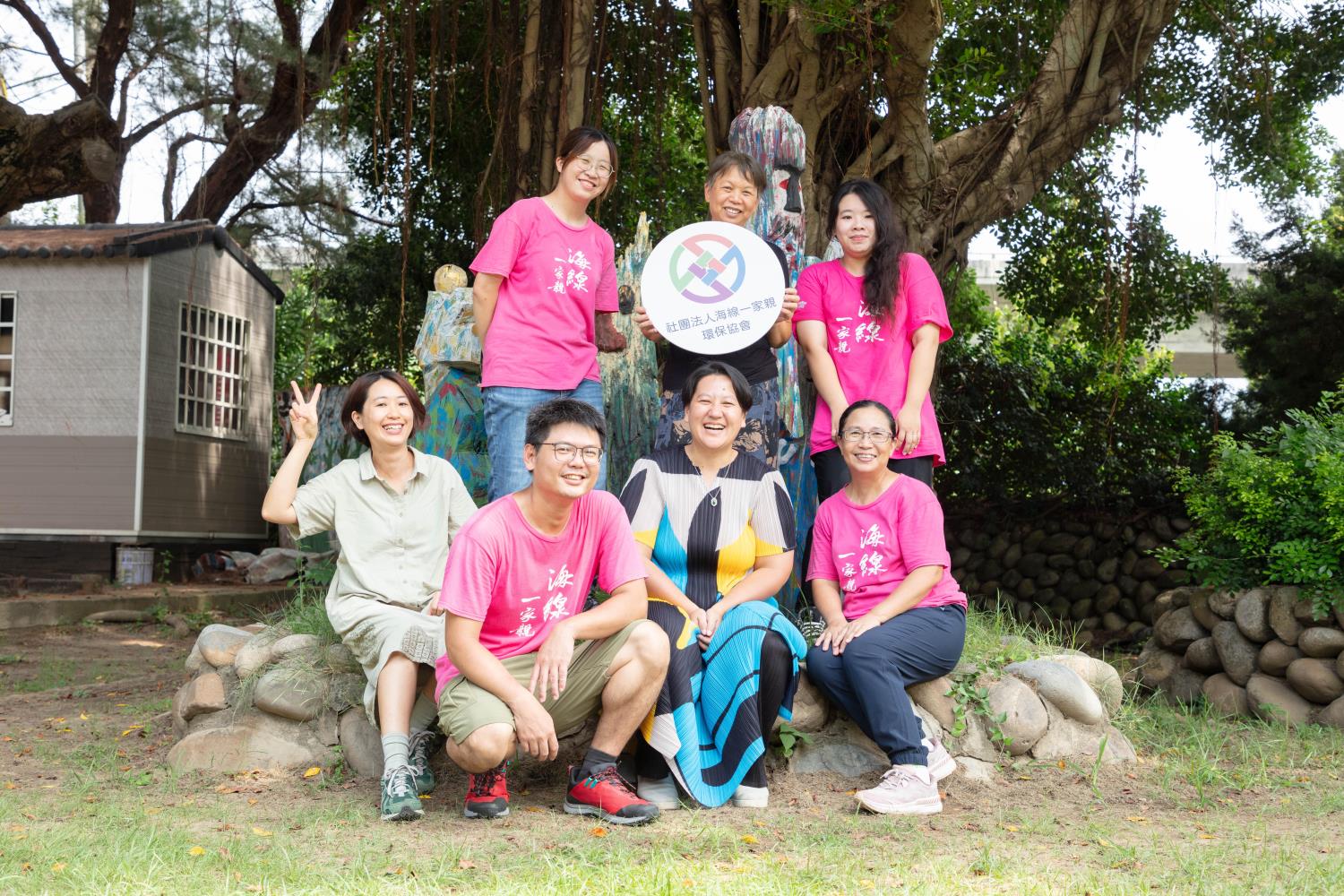
▲Most staff members of the Coastline Environmental Protection Association are young people in their 30s, and Mrs. Chen Hui-ming (the second in the front right row) hopes to restore the natural and beautiful ecology of her hometown. (Photo by Lin Ying-cheng)
Case Story: Multi-Employment Promotion and Empowering Employment Program
Interviewee: Coastline Environmental Protection Association
![]()
This work is licensed under a Creative Commons Attribution-NoDerivatives 4.0 International License.
Please attribute this article to“Workforce Development Agency, Ministry of Labor.”

